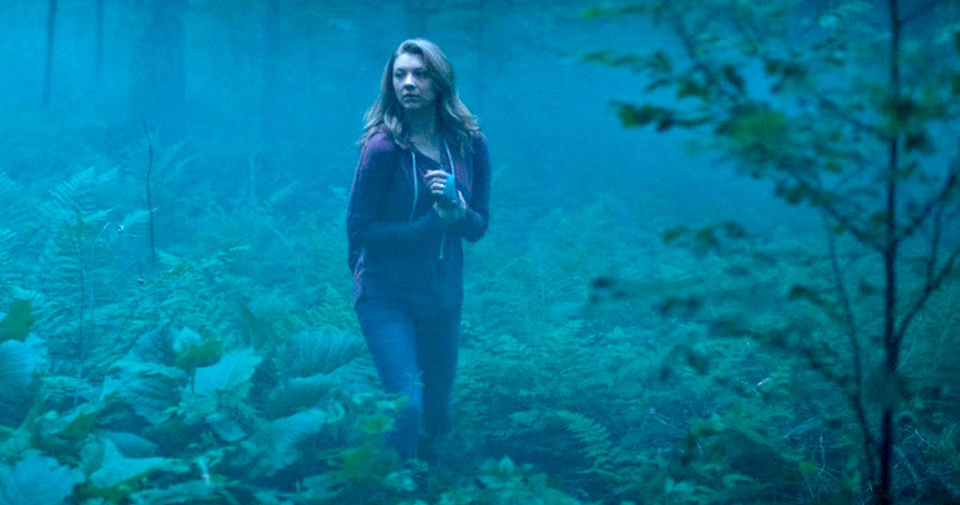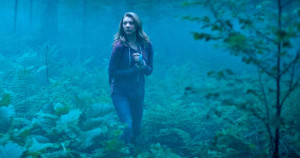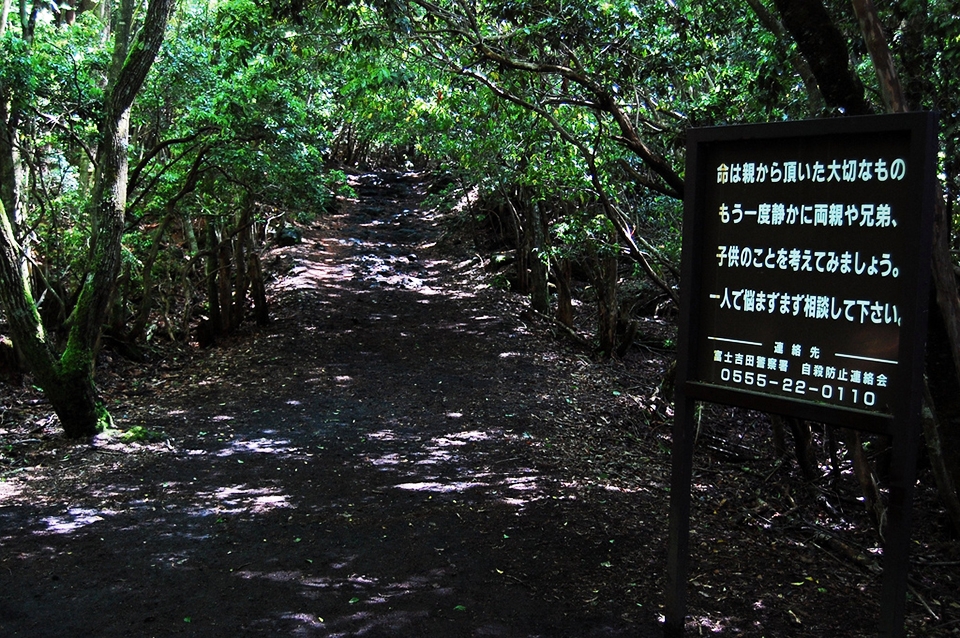
By Zachary Landau | The Duquesne Duke

“The Forest” takes place in the real life Aokigahara forest in Japan, which has seen multiple suicides take place in it over the years. In 2003, 105 bodies were discovered in the forest’s borders.
Too often in life, there are ideas that never reach their full potential, which is all that really needs to be said about “The Forest.” This horror film, directed by Jason Zada, fails to engage audiences on any level, being a mediocre waste of time that never capitalizes on the numerous opportunities it creates for itself to form a great movie.
The story to start is rather uninspired, following an American woman named Sara Price (Natalie Dormer) who is informed that her twin sister, Jess (Dormer in a dual role), has entered Aokigahara Forest, a wooded area in Japan infamous for being the site for numerous suicides. Sara travels to this forest to find her sister, facing multiple icky and disturbing obstacles along the way.
It is rather suspicious that a film that is ostensibly about a Japanese landmark stars an English actor, but this set up does have potential. Asian horror and Western horror are strikingly different, preying on different fears and utilizing different cultural zeitgeists. Going in, one would expect the film to perhaps exploit this contrast to create a more terrifying environment for the audience but, alas, no.
In fact, there is very little in the way of expanding in this movie; ideas are presented and never built upon, leading to a rather dry and uninteresting experience. In general, the writing in this film is abysmal in how tedious and lazy it is. Even one of the actors is a journalist whose primary purpose is to ask Sara to explain her thoughts and feelings out loud for the sake of his “story,” which does not matter to the plot.
Even with most of the film’s dialogue being taken up by this atrociously-handled exposition, “The Forest” answers none of the questions that it raises. Sure, it offers some explanations, such as Jess’s impulsive tendencies and why Sara is so convinced that she has not killed herself yet, but these are half-hearted answers that are delivered with the same enthusiasm and sincerity as someone recalling what they had for breakfast that morning.
Otherwise, there are no answers for the obvious questions, such as why Jess would feel compelled to enter the forest in the first place, why the forest is such a hot spot for suicidal people, who are these people committing suicide and so on. To the film’s credit, these questions are always tackled by other media that use Aokigahara Forest as a setting, so on the one hand, it makes sense for “The Forest” to try to forge a new path for itself. On the other, what was the point in setting it in this forest in the first place?
To expand on that: What is the point of this film? There really is no conflict to speak of, except some feeble-attempt to string Sara along as some guilt-ridden woman who could never carry the cross her sister bore her entire life. If this was truly the draw of the movie, then we did not need “The Forest” to tell this story. The plot would have been much better if it dialed back on the obnoxiously telegraphed jump scares and focused more intently on the psychology of guilt, much like “The Babadook” focused on the psychology of grief to great effect.
This is to say that “The Forest” never feels fully accomplished as nothing reaches its fullest potential during its runtime. The story about the guilt one sister feels for another would have been great, but ultimately has no resolution. The forest acting like an incredibly harsh Judge Judy (albeit dealing with demonic horror) would have been great, but there is no purpose for the monsters other than to be jump-scare fodder. The Japanese setting could have been used to create some sort of contrast with Western-styles of psychology, but nothing of this sort is brought up. Tons of great ideas are basically thrown together in a stew of piddle and disappointment, leaving them to anguish in mediocrity.
In the interest of fairness, there are a few things that it handles alright. Dormer, for one, is a good actress, and I would love to see her in a movie handled by more competent people. There are also a couple of chase scenes that are exceptionally well-executed, with the last one in particular being paced very carefully to find a perfect pattern of tension and release. The movie also does a few clever things with the forest, creating illusions based on an individual’s psychology, leading to a couple of neat little surprises for the audience.
Other than that, “The Forest” is overwhelmingly dull. It feels incredibly uninspired despite being loaded with great ideas, and fails to deliver on any meager expectations of excellence. That’s not to say it was unwatchable, and even now I would not mind seeing it again. However, I am sure it will be forgotten over more interesting and compelling horror films in the years to come. “The Forest” aims high but does not come close to hitting its mark.

